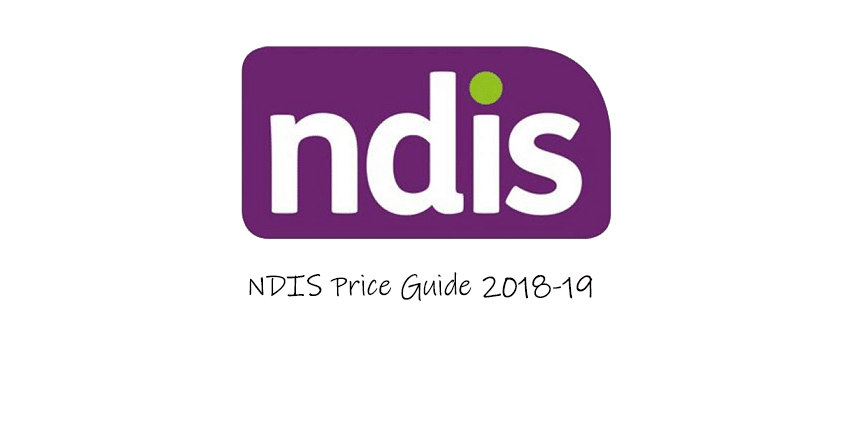
[vc_row][vc_column width=”2/3″][vc_column_text]Below is a summary of the NDIS Pricelist changes for 2018/2019 that comes into affect 1 July 2018. You can read more on the NDIA website on the following url: https://www.ndis.gov.au/providers/pricing-and-payment.html.
Some of the changes include price increases across the board (with exception of 01_020_0120_1_1 – house cleaning and other household activities), changes to provision of group services, deprecation of interpretation and employment assistance services, and changes to provider travel and appointment cancellation policies. Updated pricelist is already available in Brevity – you will have to renegotiate service agreements with existing clients if you if you wish to bill at the new rates. We will be implementing updates within Brevity to be able to easily enforce some of the rule changes.
Summary of NDIS Pricelist Changes
The NDIA confirms that the Independent Pricing Review (IPR) recommendations that will be
implemented for 2018/19, taking effect on 1 July 2018 are as follows:.
- 4 – Regional Travel
- 9 – High intensity loading for centre-based activities
- 10 – Short Term Accommodation
- 14 – Temporary Support for Overheads (TSO)
- 15 – Cancellation policy for core supports
- 16 – Group supports
- 18 – Therapy Assistants (phase one)
- 19 – Therapy travel (phase one)
- 20 – Cancellation policy for therapy
- 21 – Reports requested by the NDIA
Full details of these changes are available in the link to the 2018-19 NDIS Price Guide. Key
changes, to take effect on 1 July 2018, include the following:
- A TSO loading of 2.5 per cent will be applied to all standard intensity attendant care
price limits in the 2018-19 Price Guide. - This measure will provide temporary financial relief for providers as they transition
to the NDIS funding approach of individualised participant packages. - Half of this loading (1.25%) will remain in place during 2019-20.
- The loading will be removed in 2020-21, as an adjustment to the annual price
review - While the TSO loading is in place, the NDIA will continue to work on pathway
initiatives that will provide ongoing cost reductions and an improved and easier
experience for disability support providers.. Initiatives already underway or
completed include improvements to the provider portal, provider payments
systems, and helpful tools such as the provider finder.
| Standard needs attendant care price limit per hour |
Without TSO | TSO for 12 months | Decision – extended TSO |
|---|---|---|---|
| 2017/18 | $44.72 | $44.72 | $44.72 |
| 2018/19 | $47.02 | $48.14 | $48.14 |
| 2019/20* | $49.44 | $49.44 | $50.02 |
*The 2019/20 figures are projections only, assuming a 3.5% growth in Modern Award wage
levels on 1 July 2019.
- As in previous years, price limit increases for attendant care take full account of
growth in wages under the Social, Community, Home Care and Disability Services
Industry (SCHADS) Award as well as the Equal Remuneration Order (ERO) by Fair
Work Australia. This results in the following adjustments.
| Component | Cumulative | |
|---|---|---|
| ERO 1 December 2017 | 2.27% | |
| SCHADS wage growth 1 July 2018 | 3.50% | 5.14%* |
| TSO (applies to standard intensity supports) | 2.50% | 7.64% |
* See Appendix A for further detail
- Combined with annual ‘indexation’ adjustments to account for growth in provider
costs, this means that price limits will increase in 2018/19 by:
- 7.64% for standard intensity attendant care supports (including TSO),
- 5.14% for high intensity attendant care supports (TSO does not apply – see
Appendix A), and - 2.1% for capacity-building supports, including therapy, based on growth in the
national Wage Price Index (these supports are delivered by highly skilled workers,
for whom the SCHADS award is not an appropriate reference).
- Based on provider feedback, a new price limit will be added for Short Term
Accommodation (STA) to allow for a 1:3 support worker to participant ratio. The new
limit will be consistent with existing STA price limits, and will provide more flexibility to
providers and participants in making support arrangements. - Providers will be able to charge 90 per cent of the service booking price for short
notice cancellations, up to a maximum of 12 cancellations per year for core supports
and 6 hours per year for therapy. - New price limits will be introduced for both standard and high intensity community based
group supports, to allow for support ratios of 1:4 and 1:5 (i.e.
worker:participant ratio). - A capital allowance will be included in the price limits for centre-based group care.
- Therapy travel recommendations that will benefit providers will also be introduced
from 1 July 2018 (i.e. allowing providers to charge up to 45 minutes of travel time in
rural areas). More specific travel claiming arrangements for remote areas that were
flagged in the IPR (allowing travel costs on a quote basis) will be implemented as
soon as possible. In the meantime, travel cost arrangements for remote areas can
still be claimed, subject to explicit agreement by the participant in advance.
The implementation schedule for the remaining IPR recommendations remains as outlined in
the 24 April update https://www.ndis.gov.au/news/ipr-implementation-update.html
The NDIA is committed to ensuring that providers are supported as they transition from block
funding to the participant-led NDIS, and the eventual creation of a deregulated market for
services.
Participant Plans will be adjusted to match the indexation increases in price limits for
disability supports, ensuring participants will maintain their purchasing power for reasonable
and necessary supports. The specific impact on each participant’s budget will vary,
according to the mix of supports that are reasonable and necessary for each individual.
Changes to the group support price limit tiers and cancellation and travel policies will not be
adjusted in participant plan budgets. While these changes will have a positive impact on
individual participants through increased flexibility, changes to support arrangements
between providers and participants will only come into effect through an individual
participant’s choice, making it difficult to make broader adjustments. The NDIA will monitor
cancellation practices, particularly in areas with high risk of cancellations and heavy reliance
on provider travel (e.g. participants living in regional areas). The NDIA will consider targeted
action if there is a risk to the delivery of reasonable and necessary supports, without the
need for a plan review.
The ‘Supported Independent Living (SIL) tool’, used to determine reasonable and necessary
support budgets for participants in shared accommodation arrangements, will be updated
before 1 July 2018. The new version, for use in 2018/19, will include specific changes to
provide for an ‘indexation’ adjustment of 5.14% to account for growth in wages. Consistent
with the IPR recommendation, the TSO will not apply to SIL calculations. Because the SIL
tool will be in use from July 1, there is no requirement for SIL benchmarks, and they will be
removed from the NDIS Price Guide.
Nonetheless, existing service bookings between providers and participants for SIL will be
updated as appropriate in the following ways:
- The NDIA understands that SIL providers will experience the same wage cost growth
on 1 July 2018 as other providers of attendant care supports, but may not have
factored this growth into their original quotes. For this reason, the NDIA is taking
steps to make sure that any SIL service bookings (and participant budgets) that
continue into the 2018/19 financial year are adjusted appropriately. - In future years, SIL service bookings will not be subject to automatic updates to
account for inflation. Instead, the NDIA expects that SIL providers will use the
updated SIL tool to anticipate wage growth during the course of their service
bookings and factor in indexation as part of their quote.
APPENDIX A
Price limits increase in the NDIS line with the increase in costs that providers face in
delivering different supports. For attendant care, most of the cost is driven by wages of
support workers, who are employed under the Social, Community, Home Care and Disability
Services Industry (SCHADS) Award. Their wages increase in line with national minimum
wage decisions and the Equal Remuneration Order (ERO). Some other costs that providers
face, such as overheads, increase at a different rate, typically in line with general measures
of inflation such as CPI. Combining these increases for different costs results in an
indexation adjustment to attendant care price limits of 5.14% in 2018-19. The following table
explains this calculation in detail..
|
|
Cost growth |
Estimated proportion of costs |
Weighted average cost growth |
||
|
Labour Cost |
ERO 1 December 2017 |
2.27% |
A. 5.8% |
C. 82% |
5.14% A * B + B * D |
|
SCHADS wage growth 1 July 2018 |
3.5% |
||||
|
Other Cost |
CPI |
1.9% |
B. 1.9% |
D. 18% |
|
Combined with annual ‘indexation’ adjustments to account for growth in provider costs, this
means that price limits will increase in 2018/19 by:
- 7.64% for standard intensity attendant care supports (including TSO),
- 5.14% for high intensity attendant care supports (high intensity supports will be
addressed by more specific IPR recommendations, so the IPR recommended that
the TSO apply to standard intensity supports only), and - 2.1% for capacity-building supports, including therapy, based on growth in the
national Wage Price Index (these supports are delivered by highly skilled workers,
for whom the SCHADS award is not an appropriate reference).
[/vc_column_text][/vc_column][vc_column width=”1/3″][/vc_column][/vc_row]



